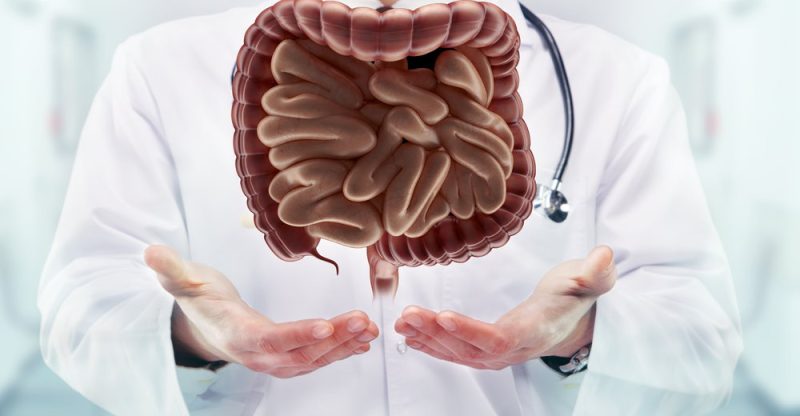Digestive Enzymes Functions, Foods and Benefits
Digestive enzymes are proteins that act as catalysts for the chemical reactions in your body. Foods with digestive enzymes include lentils, beans, avocados, walnuts, and more. They help break down food and make nutrients more bioavailable, which means they’re beneficial to people of all ages. Here’s a guide on how digestive enzymes can be used, what foods have them, and where you should find them at grocery stores near you!
The idiom “you are what you eat” is only partly true. The reality is that you are what you eat. Are digestive enzymes, therefore, essential for improved digestion, gut health, and nutrient absorption?
As surprising as it may sound, little was understood about how your digestive system truly worked until recently. Today, many ailments seem to be connected to nutritional malabsorption due to a shortage of digestive enzymes when tracked back to the cause.
Why are digestive enzymes helpful in preventing illness? Digestion enzymes (DE) mainly serve as catalysts in the body, speeding up certain, life-sustaining chemical processes.
They essentially aid in breaking up bigger molecules into smaller, more readily absorbed particles that the body may employ to live and grow.
What Are Digestive Enzymes?
The term “digestive enzymes” refers to enzymes that are employed in the digestive system.
All enzymes function as catalysts, allowing molecules to convert from one state to another. These enzymes aid digestion by breaking down large macromolecules into smaller molecules that our guts can absorb, thereby promoting gut health and ensuring the delivery of nutrients to the body.
Types:
What enzymes are the most important for digestion? They are divided into three categories:
- Proteolytic enzymes are required for the metabolism of proteins.
- Lipases are enzymes that aid in the digestion of lipids.
- Finally, amylases are enzymes that help break down carbs.
DE may be present in a variety of forms in humans, including:
- Amylase converts big starch molecules to maltose and is found in saliva and pancreatic juice. Required for the metabolism of carbs, starches, and sugars, which are found in almost all plant diets (potatoes, fruits, vegetables, grains, etc.).
- Pepsin is a protein-degrading enzyme. Pepsin, which is found in your stomach’s gastric fluid, aids in the breakdown of protein into smaller units known as polypeptides.
- Lipase is a digestive enzyme produced by the pancreas and released into the small intestine. Fats and triglycerides are converted to fatty acids after interacting with bile and required for the optimal absorption of nutrients such as dairy, nuts, oils, eggs, and meat.
- Endopeptidases like trypsin and chymotrypsin further break down polypeptides into smaller fragments.
- Cellulase aids in the digestion of high-fiber meals such as broccoli, asparagus, and beans, which may induce gas.
- Exopeptidases, carboxypeptidases, and aminopeptidases release individual amino acids.
- Lactase is an enzyme that converts sugar lactose into glucose and galactose.
- Sucrase is a sugar that is broken down into glucose and fructose.
- Maltose is broken down into smaller glucose molecules by maltose.
- Invertase, glucoamylase, and alpha-galactosidase are further enzymes that aid in sugar/carb absorption.
Digestion is a multi-step process that starts with releasing enzymes in your saliva as you chew food. Most of the job is done by gastrointestinal fluids containing DEs, which act on certain nutrients (fats, carbs, or proteins).
We produce particular DEs to aid in the absorption of certain meals. In other words, we make enzymes that are specialized in carbohydrates, proteins, and fats.
DEs aren’t only useful; they’re also necessary. They convert complex nutrients, including amino acids, fatty acids, cholesterol, simple carbohydrates, and nucleic acids, into absorbable molecules (which help make DNA).
They are produced and released in the mouth, stomach, and pancreas, among other places in the digestive system.
The six-step digestive process that stimulates DE to release in your digestive system, commencing with chewing, is outlined below:
- The first DE to aid in molecular digestion is salivary amylase, which is secreted in the mouth, and the process continues when food reaches the stomach.
- The stomach’s parietal cells are subsequently stimulated to release acids, pepsin, and other enzymes, including gastric amylase, and the process of partially digested food degradation into chyme (a semifluid mass of partially digested food) starts.
- Stomach acid also neutralizes salivary amylase, enabling gastric amylase to take up the job.
- After an hour or two, the chyme is driven into the duodenum, when acidity causes the hormone secretin to be released.
- This signals the pancreas to produce hormones, bicarbonate, bile, and various pancreatic enzymes, the most important of which are lipase, trypsin, amylase, and nuclease.
- The bicarbonate transforms the chyme’s pH from acid to alkaline, enabling enzymes to digest food while also eliminating germs that can’t survive in an acidic environment.
Most of the work is done at this phase for persons who do not have DE deficiency (low of digestive enzymes). Supplementation is required for others, and it speeds up the process.
This is also true for pets since digestive enzymes have various advantages for dogs, cats, and other animals.
Deficiency Symptoms
“Who should take digestive enzymes?” is a subject that is increasingly being discussed. That might end up being a lot more individuals than you first thought.
A DE supplement may help those who suffer from symptoms including bloating, gas, stomach discomfort, and weariness due to undigested meals. Other indicators that you may be lacking in DEs include:
- Acid Reflux
- Dyspepsia is a digestive disorder (pain or an uncomfortable feeling in the upper middle part of your stomach area)
- Desires for certain foods
- Thyroid issues
- Burping, indigestion, or heartburn
- Hair that is going out or thinning
- Skin that is dry or lifeless
- Brain fog or difficulty focusing
- Morning drowsiness
- Sleeping difficulties
- Arthritis, or joint discomfort, is a common ailment.
- Muscle weakness or a lack of motivation to exercise
- Mood fluctuations, sadness, or irritability.
- Migraines or headaches
- PMS has become worse
Taking a DE supplement may provide some assistance to those with the following health conditions:
1. Diseases of the Digestive System
DEs may be able to aid if you have any form of digestive problems, such as acid reflux, gas, bloating, leaky gut, irritable bowel syndrome (IBS), Crohn’s disease, ulcerative colitis, diverticulitis, malabsorption, diarrhea, or constipation.
They may help relieve stress on the digestive organs and reduce symptoms of gastrointestinal disorders such as stomach discomfort and bloating.
2. Enzyme Insufficiency Caused by Aging
As we become older, our stomach acid gets more alkaline, which might hinder us from producing adequate pancreatic secretions.
Aside from coexisting ailments, there’s a growing suspicion that digestive issues are caused by low stomach acid or DE deficiency, both of which are known to be typical causes of acid reflux.
3. Hypochlorhydria
Hypochlorhydria (a lack of stomach acid) makes it difficult for minerals, vitamins, and nutrients to be “cleaved” or released from food while in the gastrointestinal system. If this activity fails, nutritional insufficiency is the outcome.
4. Enzyme-Related Illnesses and Liver Disease
Anyone with liver illness should be suspicious of having an enzyme deficiency at the same time. Alpha-1 antitrypsin deficiency, a genetic illness that affects around one in every 1,500 persons globally, is one of the more frequent disorders.
Unintentional weight loss, repeated respiratory infections, tiredness, and fast heartbeats are all possible symptoms.
There are several ailments that (at first glance) seem to be unconnected to poor DE production, including:
Other signs and symptoms of enzymatic deficiency include:
- If the feces is pale and floats in the toilet bowl, or if it’s oily or fatty, it’s time to replace it.
- Stomach distention and diarrhea, particularly an hour after eating, are common gastrointestinal problems. Indigestion and flatulence are additional signs.
5. Insufficiency of the pancreas
The inability of the pancreas to release the enzymes required for digestion is known as pancreatic insufficiency. This is a prevalent issue among pancreatic cancer patients.
Patients with pancreatic cancer, chronic pancreatitis, cystic fibrosis, and following intestinal surgery may benefit from prescription pancreatic enzyme preparations (also known as a replacement therapy).
Foods To Eat
Enzymes promote digestion in many raw plants, such as fresh fruits and vegetables.
The finest natural sources of DEs are raw fruits and vegetables produced in nutrient-rich soils, so be sure to stock up on them when you go grocery shopping:
- Pineapple
- Papaya
- Kiwi
- Yogurt and kefir
- Bananas
- Mango
- Tempeh, miso, and soy sauce (fermented soy products)
- Kimchi with sauerkraut
- Avocado
- Pollen from bees
- Apple Cider Vinegar
- Unprocessed Honey
The majority of digestive enzyme supplements come from three places:
- Fruit-based (often pineapple or papaya). Bromelain is a pineapple enzyme that breaks down a wide variety of proteins, has anti-inflammatory qualities, and can survive a wide pH range (acidic/alkaline). Another enzyme generated from raw papaya that aids in the breakdown of both tiny and big proteins is papain.
- Animal-derived, such as pancreatin from an ox or a hog.
- Probiotics, yeast, and fungus are all generated from plants.
Supplements
It’s preferable to take a supplement that covers all the bases since proteins, carbohydrates, starches, and fats all need different kinds of enzymes.
Many experts believe that the finest digestive enzyme supplements are ones that have a full-spectrum combination aimed at improving overall digestion. Therefore, look for a supplement that contains a range of enzymes, such as the ones listed below (price varies depending on the supplement you buy):
- Beano contains alpha-galactosidase, an enzyme produced from Aspergillus niger that improves carbohydrate digestion.
- Amylase
- Cellulase
- Glucoamylase
- Invertase
- Lactase
- Lipase
- Diastase of malt
- Protease
- Peptidase
- Beta-glucanase
- Pectinase
- Phytase
Here are some suggestions for buying DEs depending on your symptoms and current state of health:
- If you have gallbladder problems and need a natural remedy, seek one that has more lipase and bile salts.
- If you find betaine HCL mentioned as a product component, double-check that it also includes pepsin.
- Others include lactase, which was previously exclusively accessible as a separate product. This enzyme was created to help those who have problems with sugar absorption from dairy products.
- If you have an autoimmune or inflammatory illness, consider taking a protease supplement, which aids in protein digestion.
- Choose a mix that includes herbs that aid digestion, such as peppermint and ginger.
- Also, while some individuals need more pancreatic enzymes than others, keep in mind that the amount of each is based on your requirements. Pancreatin, which is a mixture of all three pancreatic enzymes, is found in almost all goods.
Is it possible to get DE supplements that are vegan?
Only plant-based enzymes are used in certain goods targeted towards vegetarians and vegans. These normally include bromelain, a pineapple enzyme, and many also include papain, a papaya enzyme.
Pancreatin produced from Aspergillus niger is often seen in products intended exclusively for vegetarians. This is a fungus-based, fermented product rather than an enzyme derived from ox or hog bile, which is the normal source.
In addition, some feature herbs and spices that compliment each other. For example, Amla (gooseberry) extract is often included. Amla (gooseberry) extract is not an enzyme but rather a herbal treatment used in Ayurvedic medicine for general well-being. It is thought to operate in conjunction with the other chemicals.
When is the best time to take digestive enzymes?
Take DEs approximately 10 minutes before each meal or with your first mouthful for the best benefits. In addition to DEs with meals, protease supplements may be taken in between meals.
Begin by taking enzymes with two meals each day and gradually increase your dose as required.
Is it possible to combine probiotics with digestive enzymes?
Yes. Before a meal, take enzymes, and after or in between, take probiotics.
Probiotics may also be found in fermented foods, including yogurt, kefir, kimchi, and sauerkraut. Probiotics may help restore gut microbiota balance, assist digestion, and relieve symptoms like gas and bloating.
Benefits
Why are digestive enzymes beneficial to your health? Mostly because they aid in the digestion of meals.
Many individuals should take digestive enzymes for the following reasons:
- By relieving stress on the gastrointestinal system, you may help cure leaky gut and associated disorders like celiac disease.
- Maintain a healthy bacterial and microbiota balance in the gut.
- Assist the body in absorbing protein and carbohydrates that are difficult to digest, such as gluten, casein, and lactose (milk sugar).
- Acid reflux and irritable bowel syndrome symptoms are much improved.
- Improve nutrient absorption and avoid deficiency.
- Foods including peanuts, wheat germ, egg whites, almonds, seeds, beans, and potatoes naturally counteract enzyme inhibitors.
You may be wondering whether digestive enzymes can help you lose weight or burn fat and if they can help you get rid of constipation.
If you don’t produce enough DEs to assist the digestive process go smoothly, you may develop constipation, which may improve with supplementation. DEs, on the other hand, aren’t usually associated with weight reduction and aren’t meant for that goal, but they may help you reduce your cravings and feel satiated with less.
Uses in Ayurveda and Traditional Chinese Medicine
Rather than supplementing, traditional medical systems have long emphasized treating weak digestion holistically by implementing dietary and lifestyle modifications. For example, people were advised to eat raw and probiotic foods that naturally supported gut health even before digestive enzymes were accessible in supplement form in the last 50 years.
Digestion, according to Ayurveda, is dependent on a sufficient amount of agni, or “digestive fire.” Agni is supposed to be increased by eliminating indigestion-causing factors (such as eating while stressed or close to sleep), optimizing your nutrition, and strengthening your digestive organs using herbs and home treatments.
In Ayurveda, spices have an essential function in digestive support, particularly:
- ginger
- turmeric
- cumin
- coriander
- fennel
- cardamom
- fenugreek
- cinnamon
- rosemary
- sage
- oregano
Drinking herbal tea that may aid with enzyme processes, such as tea brewed with one-third teaspoon each of cumin, coriander, and fennel that has been boiled and drained, is one way to boost digestive fire. Eating papaya is also recommended since it contains papain, which is supposed to help with inflammation.
Digestion is addressed in Traditional Chinese Medicine by increasing “qi,” or vital energy. The utilization of plant-based enzymes gained through eating complete meals is supplemented by acupuncture, medicines, exercise, and stress management.
The best foods for digestive assistance are raw fruits and minimally cooked vegetables.
Other methods for promoting gut health include:
- consuming foods that are native to the area and are in season
- selecting non-GMO, organic, unprocessed foods
- consuming less sugar, drinks throughout meals, and cold foods
- completely eating foods
- not eating for two to three hours before going to bed
- to boost hunger, try tai chi, yoga, exercise, and stretching.
Side Effects and Risks
Is it possible that digestive enzymes be harmful? Again, it’s good to see a health practitioner for aid with personalized DE treatment if you’re struggling with a persistent health condition.
Your doctor can assess which DEs are the safest and healthiest for you to take according to your health state. For example, before using supplements, talk to your doctor if you have a history of liver or gallbladder illness or ulcers.
What are the possible negative effects of digestive enzymes? While they are normally well tolerated and beneficial, they may sometimes cause the following negative effects:
- nausea
- diarrhea
- cramping in the stomach
- gas
- headache
- swelling
- dizziness
- blood sugar levels fluctuate
- responses to allergens
- abnormal feces
Stop taking the medication and talk to your doctor if you have these side effects.
If you take a very high dose and neglect dosage guidelines, you’re more likely to get digestive enzymes side effects, so always read product labels carefully.
Digestive vs. Pancreatic Enzymes
The phrase “digestive enzymes” — often known as “stomach enzymes” — refers to pancreatic, plant-derived, and fungal-derived enzymes.
Pancreatic enzymes may be found in the eight cups of pancreatic juice most people produce every day. These juices include pancreatic DEs, which promote digestion, and bicarbonate, which helps to neutralize stomach acid.
The names of pancreatic enzymes generally finish in -in (such as trypsin or pepsin), while the names of other DEs frequently end in -ase or -ose (like lactose, sucrose, fructose).
These enzymes, which mostly deal with lipids and amino acids, include:
- For example, lipase is an enzyme that breaks down triglycerides into fatty acids and glycerol.
- Amylase is a protein that breaks down carbs into simple sugars.
- Elastases are enzymes that break down the protein elastin.
- Trypsin is an enzyme that breaks down proteins into amino acids.
- Chymotrypsin is an enzyme that breaks down proteins into amino acids.
- Nucleases are enzymes that break down nucleic acids into nucleotides and nucleosides.
- Phospholipase is an enzyme that breaks down phospholipids into fatty acids.
The salivary glands, stomach, pancreas, liver, and small intestine are the key enzyme-producing tissues in the human digestive system.
Water, electrolytes, amino acids, cholesterol, lipids, and bilirubin are all obtained from the liver through the gallbladder by the pancreas.
When the amino acids glycine or taurine are coupled with the cholic and chenodeoxycholic acids, the bile salts are formed, which are necessary for nutritional absorption.
Conclusion
- Digestive enzymes aid digestion by breaking down huge macromolecules into smaller molecules that our stomachs can absorb.
- Proteolytic enzymes, lipases, and amylases are three types of DEs that all metabolize distinct macronutrients.
- Those with inflammatory bowel illness, IBS, low stomach acid (hypochlorhydria), enzyme insufficiency, pancreatic insufficiency, autoimmune disorders, constipation, diarrhea, and bloating may benefit from DE supplements.
- Fruits (particularly pineapple and papaya), animals (such as ox or hog), and plant sources (such as probiotics, yeast, and fungus) are all good sources of DE supplements. First, however, select a vitamin that addresses all of your concerns (a full-spectrum enzyme blend).
- Pineapple, papaya, kiwifruit, fermented dairy, mango, miso, sauerkraut, kimchi, avocado, bee pollen, apple cider vinegar, and raw honey are all good sources of natural digestive enzymes.
Frequently Asked Questions
What are the benefits of digestive enzymes?
A: The benefits of digestive enzymes are numerous, but two that come to mind are improved digestion and weight loss. Enzymes aid with breaking down food so it can be absorbed into your bloodstream, ultimately improving how well your body deals with nutrients.
What foods contain digestive enzymes?
A: Some foods that contain digestive enzymes include starchy vegetables like potatoes, legumes such as beans, and whole grains.
What are the 4 functions of enzymes?
A: Enzymes are organic compounds that catalyze specific reactions. The four primary functions of enzymes are Catalysis, Carboxylation, Dehydration-condensation, and Hydrogenolysis.
FDA Compliance
The information on this website has not been evaluated by the Food & Drug Administration or any other medical body. We do not aim to diagnose, treat, cure or prevent any illness or disease. Information is shared for educational purposes only. You must consult your doctor before acting on any content on this website, especially if you are pregnant, nursing, taking medication, or have a medical condition.
HOW WOULD YOU RATE THIS ARTICLE?





